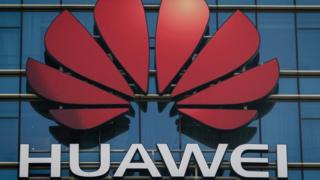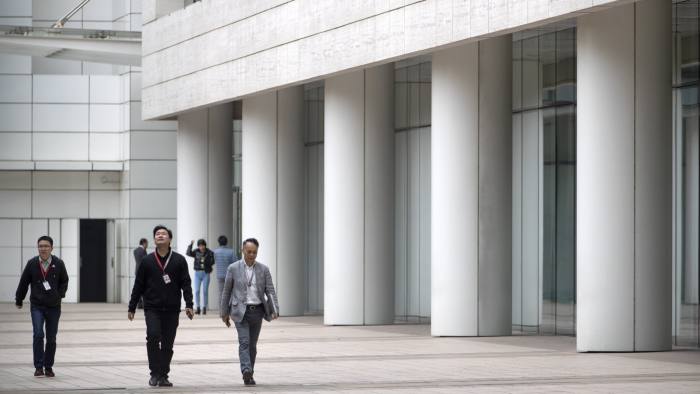Huawei's Reputation Takes a Hit in China
"Many middle-class Chinese used to believe that if they went to good schools, worked hard and cared little about the current affairs they would be able to realize their Chinese dreams."
"Now their dreams are in tatters."
Chinese blogger, Weibo
"One enjoyed a sunny Canadian mansion while the other enjoyed the cold and damp detention cell in Shenzhen."
Jiang Feng, psychologist, Zhihu Internet site, China
"Huawei has the right, and in fact a duty, to report the facts of any suspected illegal conduct to authorities. We respect the decisions made by the authorities."
"If Li Hongyuan believes that he has suffered damages or that his rights have been infringed, we support his right to seek satisfaction through legal means, up to and including lawsuit against Huawei."
Huawei Technologies
 |
| Huawei is facing backlash after a former employee was wrongfully detained for eight months in China. Getty |
When, over a year ago, Huawei's CFO, Meng Wanzhou was arrested at the Vancouver Airport on an extradition warrant from the United States for malfeasance relating to the Iran sanctions, an outpouring of support was manifested in China for Huawei and the arrested Ms. Meng. Huawei's smartphone sales in China increased from a year earlier by 66 percent. While sales for Apple and Huawei's own domestic competitors dwindled, according to research firm Canalys.
That was then. There is an entirely different story afoot currently with many Chinese thinking of boycotting Huawei products. A new wristband campaign is circulating online of a pair of Huawei-branded handcuffs. One of the bands is the "free meal and accommodation version" in reference to life in prison. According to a public relations executive, Tang Ting, the outrage could very well be the cause of long-lasting damage for the Huawei brand.
 |
| Meng Wanzhou, chief financial officer of Huawei Technologies Co., leaves her home for a court appearance wearing an electronic ankle tag in Vancouver, British Columbia, Canada, on Oct. 1, 2019. Jennifer Gauthier—Bloomberg via Getty Images |
And that has its genesis in the plight of a former Huawei employee who had graduated from one of China's 985 elite universities, worked from 9:00 a.m. to 9:00 p.m. six days weekly and then was put in jail for 251 days when he demanded severance pay when his contract failed to be renewed. This story generated furious online responses. Articles and comments on the issue saw swift deletion thanks to Chinese censors.
Li Hongyuan, the former employee, was released from prison eventually. No charges were ever brought against him. He did receive government compensation to the tune of $15,000 a few weeks back, and then he did the unthinkable; he shared his story online. Which became a cause celebre and a gigantic headache for Huawei as its reputation began to wane.
And then, coincidentally, Meng Wanzhou published an open letter bemoaning feelings of fear, pain, disappointment, helplessness, torment at her arrest and subsequent bail which allowed her to live in one of her luxury Vancouver mansions. Happily, she wrote, she has learned to accept the unknown and passes her days, talking to people, shopping, painting.
On its publication, the Chinese Internet went wild at the published plight of "princess", daughter of Huawei's founder, Ren Zhengfei. On Weibo, the Chinese media platform, users posted the numbers 984, 995, 251 and 404 in comments under her letter, referring to the real plight of Li Hongyuan. The contrast between Meng's house arrest and the Huawei employee's plight struck a chord in the public.
They would, of course, know nothing about the arbitrary arrest of two Canadian businessmen in China who have been incarcerated for over a year, as pay-back to Canada for Meng's arrest. The Canadians, Michael Spavor and Michael Kovrig languish in harsh conditions in a Chinese jail, refused legal counsel, unable to see family members, permitted brief and infrequent consular visits, awaiting their fate, having been accused of trumped-up charges of espionage.
The Chinese public is fixated on the contrast between Meng's and Li's circumstances. Having been employed by Huawei for 12 years, Li negotiated a $48,000 severance package in 2018 but he was not given an end-of-year bonus that had been promised him and he sued Huawei in November 2018. A month passed and he was detained and accused of leaking commercial secrets. Officially arrested in January on an accusation of extortion, he was released with no charges in August.
 |
| Huawei employees walk through the company’s Shenzhen campus. At least five former employees were detained by police in December 2018 © AP |
"Once a company becomes a cold, dehumanized grinding machine, what's the point for it to exist?" wrote a blogger, Jiang Jingling, criticizing Huawei for trampling on its employee's rights. In its initial operation, Huawei had cultivated a "wolf culture" encouraging employees to embrace hard work to the extent that new employees would be given a mattress on joining the firm, since everyone was expected to work late and often to sleep in the office.
A series of employee deaths drew harsh attention to the company's work ethic with an investigative report by a news weekly verifying six unnatural deaths in two years, including four suicides, linking them all to the company's work rules. More currently, Huawei became symbolic of China's technological industry, and the public was encouraged to criticize the U.S. for its efforts to degrade Huawei's reputation with claims of cyber espionage.
Online users have been circulating articles about what it's like to be imprisoned, particularly in Shenzhen in the Longgang detention centre where Li was imprisoned for over eight months, leading many middle class professionals to be concerned that what happened to Li could visit them. Huawei just happens to be based in Shenzhen's Longgang district.
The Weibo posts of Meng's letter received thousands of comments, many of which simply noted 251, the number of days Li had been detained in prison. "A company that's too big to criticize is even scarier than a company that's too big to fail", stated economics professor Nie Huihua, at Renmin University in Beijing.
 |
| Smashed Image |
Labels: Canada, China, Huawei, Imprisoned Canadians, Meng Wanzhou

<< Home